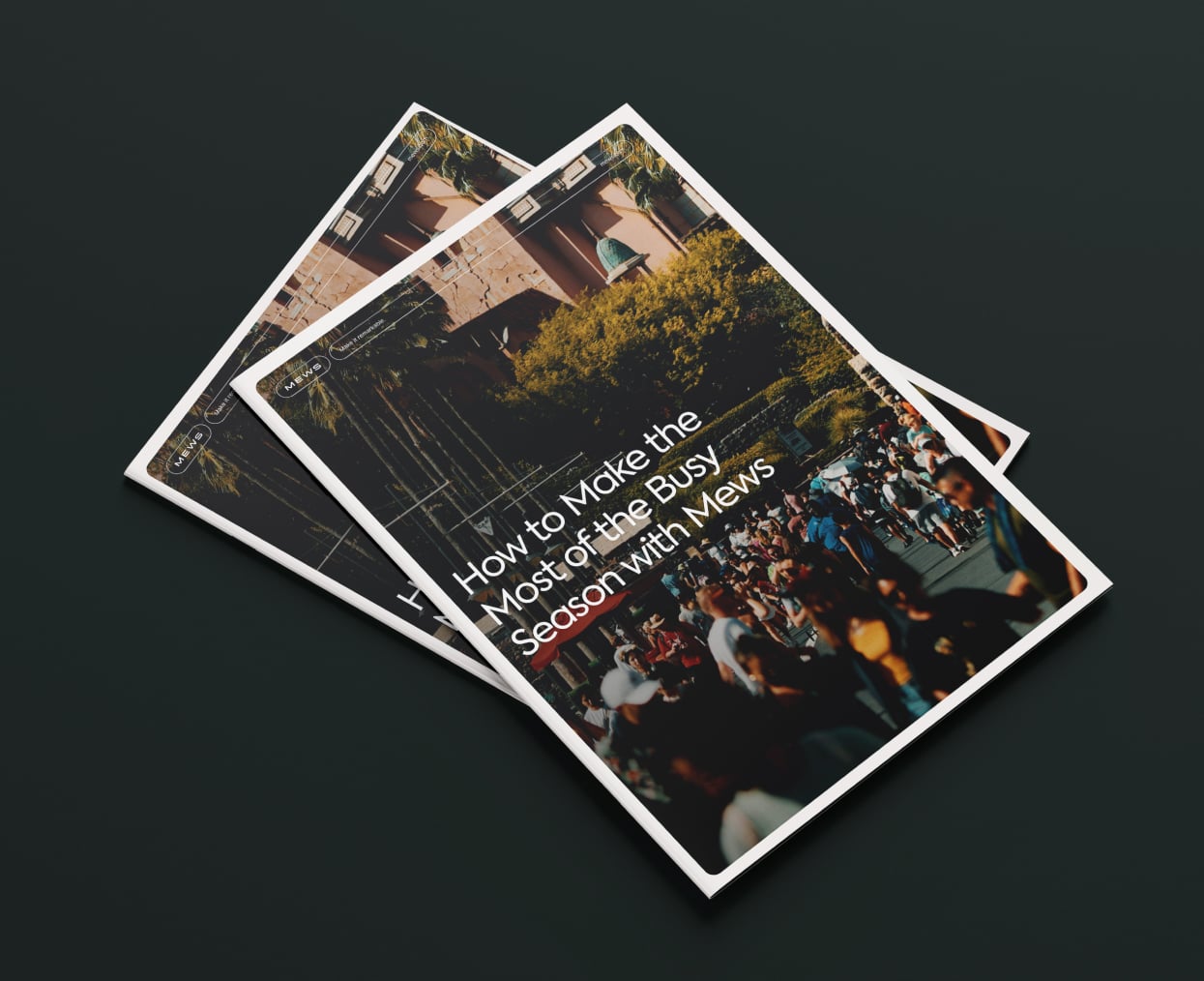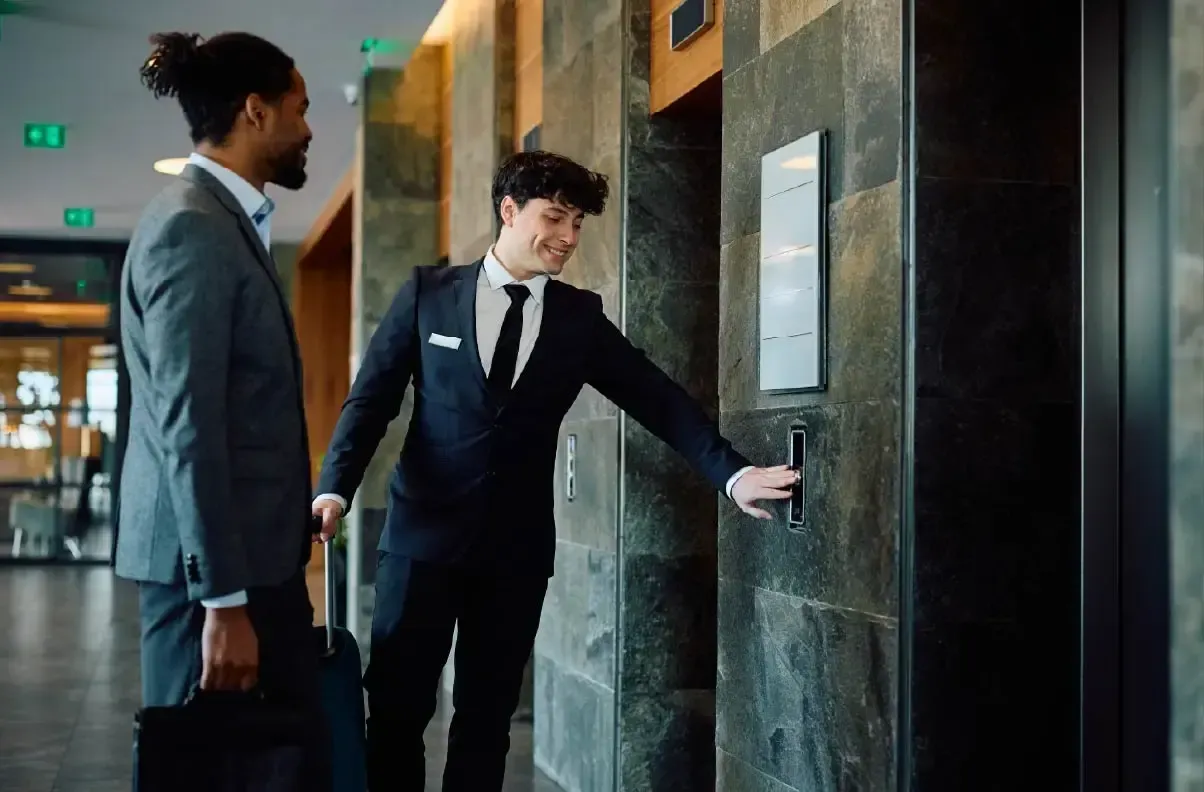Staffing in hospitality is never straightforward. Hotels operate year-round, but demand fluctuates constantly, making it a challenge to maintain the right team size. That's where hotel seasonal staffing comes into play - finding the right balance between part-time staff, seasonal employees and your core year-round team members.
With proactive hiring based on forecasting, automated scheduling and streamlined operations, hotels can avoid last-minute recruitment that limits choice and drives up costs. It's all about maintaining service quality to improve the hotel guest experience while also managing budgets effectively.
What is hotel seasonal staffing?
Seasonal staffing means hiring temporary employees to support hotel operations during peak periods of demand like summer holidays, ski season or local events that drive a surge in hotel bookings. It's a standard practice in an industry that ebbs and flows with the travel calendar.
Unlike permanent employees who work year-round regardless of hotel occupancy, seasonal staff are brought in to manage busy periods. They might work for a few weeks or a few months, helping hotels maintain brand standards without committing to long-term contracts.

Benefits of seasonal staffing in hotels
Let's take a look at the benefits of hiring staff to cover seasonal work.
Ensure exceptional service during peak seasons
Bringing in temporary staff during high season ensures key departments - front desk, housekeeping, food service and concierge - can handle the surge in guests. The goal is to maintain service standards and meet guest expectations even when occupancy spikes.
Control labor costs
Seasonal hiring lets hotels match staffing levels with actual demand, avoiding unnecessary payroll costs. It's usually cheaper to bring in temporary staff than to over-hire full time and then face layoffs during low season.
Support full-time staff and reduce burnout
Seasonal workers help relieve pressure on permanent employees, reducing fatigue, burnout and hotel staff turnover. Because many hospitality professionals are used to similar roles across properties, they can adapt quickly and integrate easily with existing teams.
Improve flexibility across departments
Cross-training seasonal employees creates a more agile workforce in your hotel. If hotel staff can fill multiple roles, such as front desk, food service or housekeeping, it's easier to cover shifts and maintain smooth operations throughout your property.
Access skilled seasonal talent quickly
Seasonal staff who are used to seasonal employment in the hospitality industry often need minimal onboarding, as the roles and systems are familiar across the industry. The more frequently you rehire proven talent, the faster and more efficiently they can get up to speed.
Common challenges of hotel seasonal staffing
- Meeting peak demand without overstaffing
- Last-minute hiring stress
- Maintaining service quality and guest satisfaction with temporary employees
- Encouraging collaboration between permanent and seasonal teams
- Managing contracts, schedules and compliance
- Training and onboarding new seasonal staff efficiently

Best practices for seasonal staffing
Check out some of the best practices you can implement for seasonal staffing.
Plan ahead to avoid last-minute stress
Forecast your staffing needs using historical high season data and upcoming local events. Early planning helps balance your permanent year-round team with seasonal hires and ensures you're never caught short.
Recruit the right people early
If you have reliable seasonal staff you've worked with before, secure them early before competitors do. Always check references and past employers - chain hotels can be a strong indicator of consistent performance.
Onboard quickly and effectively
Streamlined onboarding is key. Keep your standard operating procedures (SOPs) up to date and use your PMS to document responsibilities and workflows so new hires can integrate smoothly and deliver consistent service from day one.
Keep your workforce flexible
Cross-train both permanent and temporary staff to handle different roles. A multi-skilled team means you can adapt quickly to fluctuating occupancy levels without overstaffing specific departments.
Engage and retain seasonal staff
Treat seasonal staff as part of the team. Provide mentorship from full-time employees, recognise top performers and offer incentives. When staff feel valued, they deliver better service and are more likely to return next season - reducing recruitment time and costs.
Plan for post-season transitions
Conduct exit interviews to identify high performers and build a pool of trusted seasonal talent for future peaks. Proactive planning helps maintain operational excellence year-round, no matter how demand fluctuates.
How Mews helps hoteliers manage seasonal staffing
A modern property management system like Mews simplifies hotel seasonal staff seasonal management by helping you:
- Forecast staffing needs
- Automate scheduling and shift management
- Streamline operations across departments
- Gain actionable insights into productivity and task completion
- Enable flexible role assignments
- Simplify onboarding with intuitive, easy-to-use software
By leveraging the right tools, you can make smarter, cost-effective staffing decisions and maintain high service standards even during periods of rapid change.
Conclusion
Hotel seasonal staffing is essential for maintaining service quality during peak periods without over-hiring or straining your budget. By planning ahead, hiring strategically and using smart technology like Mews, you can deliver exceptional guest experiences year-round - whether staffed by full-time or seasonal employees.
Download our guide "14 tips to be the best during busy season"

Written by

Jessica Freedman
Jessica is a trained journalist with over a decade of international experience in content and digital marketing in the tourism sector. Outside of work she enjoys pursuing her passions: food, travel, nature and yoga.










